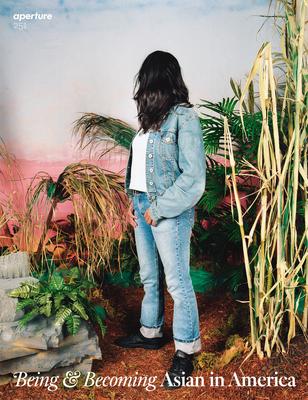In "Being & Becoming," Ryan Lee Wong interviews An-My L and Pao Houa Her about photography, fiction, and truth in the aftermath of war. Bakirathi Mani looks at artists engaging with collections and public archives shaped by colonial histories, while Xueli Wang writes about those making work in domestic spaces as a way to push back against assimilation. Ken Chen discusses Toyo Miyatake's striking record of life inside the Manzanar prison camp in the central Californian desert. Simon Wu reflects on performative conceptual photographer and documentarian of East Village life Tseng Kwong Chi and his downtown New York era. And Aleesa Pitchamarn Alexander speaks with Reagan Louie, who has spent more than fifty years addressing issues of migration, cultural transformation, and intergenerational dialogue through photography.
Among the artist portfolios in "Being & Becoming," Gina Osterloh-whose work is featured on the cover-- experiments with the legibility and illegibility of identity. Leonard Suryajaya constructs exuberant scenes of life in Indonesia and Chicago. Arthur Ou considers the act of seeing the world as a precursor to understanding his place in it. Guanyu Xu layers images of domestic spaces, filled with symbols of home, history, and affection. Priya Suresh Kambli mines family photographs to produce collages about migration and memory, and Jarod Lew composes "deliberately uncluttered" images of his family in Detroit. This issue also features essays from Phoebe Chen, Tausif Noor, Mimi Wong, Amy Sadao, Xuan Juliana Wang, Amitava Kumar, and Simon Han.
In The PhotoBook Review--included within every issue of Aperture as of summer 2022--Taous Dahmani speaks with Ceacute;cile Poimboeuf-Koizumi, bookmaker and co-founder of the Marseille-based independent publisher Chose Commune. Lena Fritsch reviews an expansive new book that charts Japan's unparalleled history of photography in print publications. In addition, Aperture's editors review new and notable photobooks.
